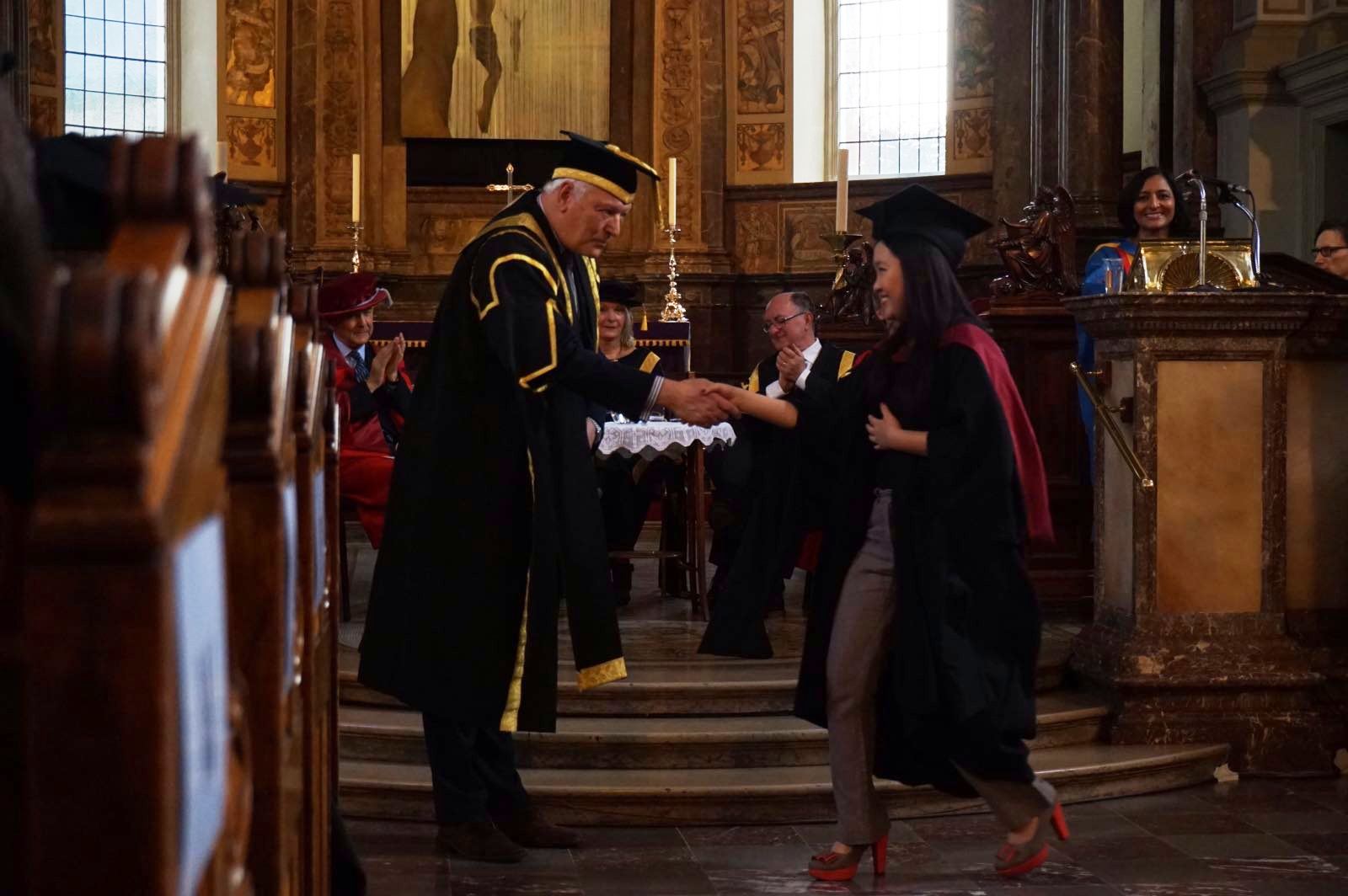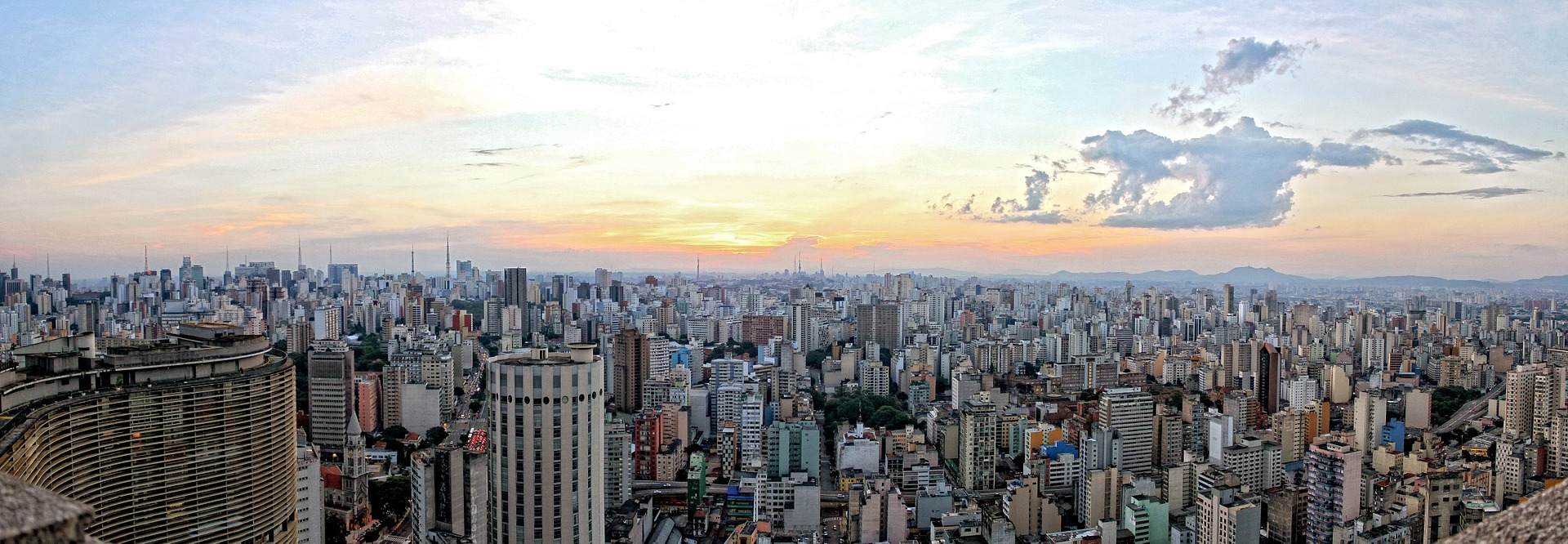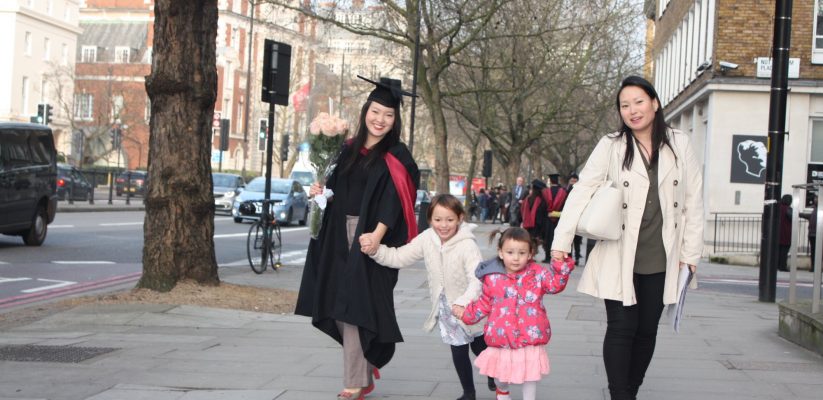One of the questions people ask me the most about my study experience abroad is how the Masters impacted my career. This question makes total sense. After all, the Masters degree plays a key role in helping the graduates to qualify themselves and enhance their professional perspectives. This return on investment expectation is even more critical for courses abroad, as it involves a thorough financial planning, career pause and significant personal changes.
Those who have their newly-achieved diplomas in their hands might be asking, “So what? What is the next step going forward?”. Today, I’m going to take the opportunity to resume my blog and tell you how it was – and how it has been – for my career after concluding my MA degree in the UK last year. It’s been quite a ride!
A year ago, in London…
Today is a very special day for me, as it marks precisely one year after my graduation ceremony. On March 12th 2016, I received officially my Marketing Communications Masters degree from the University of Westminster.
I still remember like it was yesterday: a sunny afternoon with a blue open sky at the centre of London. I was fortunate enough to spend that beautiful day with my family, who took part of one of the most amazing achievements of my life.
At the ceremony, not only had I received my graduate diploma, but I was honoured with a Distinction degree and the award of the most outstanding student of the class. Hearing my name followed by strong applauses from the crowd made me shiver of pure excitement. The best thing, though, was to see my nieces’ faces while receiving the title. No applause could be louder than my family’s, nor the greatest acknowledgement could compare to their smiles. That’s when I knew, at that very moment, that every effort has been worth it.

Coming back to Brazil
A month later, I flew back to Brazil to start off a new chapter in my life. Of course, the beginning wasn’t easy at all. Right when I landed in Sao Paulo, I felt a shock which took a while to fade out. The hot weather, the heavy traffic, the people… everything. It all seemed strange to me.

Little by little, I started to adjust myself thanks to the support of my family, friends and my boyfriend. In early May, I started to look for jobs through social media, send my CV and talk to my friends and former co-workers. Despite feeling confident, there were moments of anxiety of not getting a job as quickly as I hoped. The crisis was on its peak and I saw many friends unemployed or unmotivated at the time.
That’s when I decided to take advantage of my Masters as a competitive advantage to my CV. I see now that my overseas experience has helped me tremendously to arrange interviews for really good job opportunities. In addition, as I already had professional background built up in Brazil prior to the course, retaking my network contacts was a lot easier and I was able to learn about many vacancies through word-of-mouth.
How I got “the” job
Curiously, the job I took at the end came up to me at a completely unexpected and surprising way, though. That’s because I found it not by friends’ indication or reference, but through a LinkedIn job post!
The opportunity was “Customer Experience Manager” at Cisco, a respected and well-known IT giant at tech business, which I already knew from previous experiences. As I read the description, I just knew I couldn’t miss the chance.
I applied to the post and went through the selection process during the following weeks. For my delight, I was accepted for that position and started off at the company in mid-August, roughly four months after returning to Brazil.
So far, my role at Cisco has been one of the most incredible and transforming experiences of my career. I get to work with so many diverse and talented people, manage some interesting projects and campaigns and learn something new every day.
In that sense, I tell you without hesitation: my MA degree was not only a title added to my resume, but the foundation I needed to prepare myself and boost my professional level and skills. My career has been leveraged by many ways thanks to my experience in England, as well as many of the colleagues who followed their paths in their respective countries.
5 tips based on my journey last year
Now, if you are about to finish your international course, or have returned recently to your home country and is looking for a job, I have some tips for you. All of these applied to my journey back to Brazil, during the good and bad times, and I wholeheartedly recommend them to ease any anxiety or concern you might be having. So here it goes:
1. One step at a time: if you are a millennial like me, it might be hard to do in such a fast-paced and competitive world we live in. But hey, don’t panic if you don’t find the job right away. It takes time, so expect some few months to get an opportunity that really fits to your goals and skills. Don’t go spreading your resume for random vacancies just to get a job. Keep focused – if financially possible, decline some posts if you feel it’s best to wait a bit more. Believe in your intuition!
2. Take some time to reflect: the coolest thing about returning from a different country is the feeling of building a fresh new start on your life. That opens your mind to new challenges and projects. Thus, enjoy this period to ponder if it’s worth to change careers, or try a more senior role or at a different market. In my case, I’ve had a solid background in communication consultancies, but I yearned to work at a tech company’s marketing team, so I narrowed my search for that type of role. At the end, it did pay off as I landed the job at Cisco which matched perfectly to what I was looking for.

3. Use your networking with common sense: creating good contacts is part of everyone’s careers, but turning them into long-lasting relationships is the greatest secret (and challenge) for a benefiting professional network. The advice I give here: resume your contacts gradually and be careful on your approach while asking for indications. Even if it’s a childhood friend who’s referring you to a position, it’s best to maintain a professional behavior throughout the whole process.
4. Embrace the power of social media: references are still very important to get closer to that dream job, but don’t put the social media channels aside to look for jobs, apply to vacancies and contact recruiters. Keep your LinkedIn profile updated, use search engine and be pro-active. Sometimes, we find the best opportunities where we least expect.
5. Use your experience abroad as example: whenever you can, take your Masters study experience as example/case during interviews. Team work, leadership, negotiation skills are some of the competencies which you can connect to your wins and learnings abroad. After all, you end up dealing with people from all around the world, who have completely different mindsets and cultures. That experience itself is incredibly valuable, not to mention the handling of pressure of the exams, projects, the constant use of English, etc. In my case, when I was asked about my dissertation thesis, I got so excited that I should have talked about it for 10 minutes non-stop!
Oh, and one last thing…
Now, my last advice here for those who are in the middle of the course or in any previous stage: don’t focus only on the study experience. Envision what you want and expect after graduating – this planning will help you to be more prepared at the end.
It is an incredibly worthwhile and rewarding life journey, and something I am immensely proud of. Learn how to make the best out of this experience and seize the good opportunities which come along the way. You won’t regret it!

Read this and other Susana’s posts on her LinkedIn blog
- 5 differences between British and Brazilian postgraduate education - June 16, 2018
- Carol and her inspirational journey from Brazil to UK - October 2, 2017
- My career in Brazil one year after graduating from Masters at Westminster - March 17, 2017
